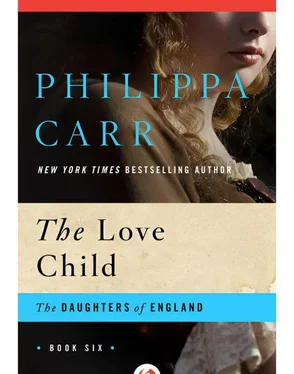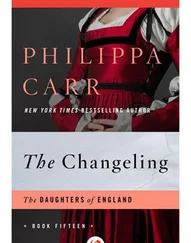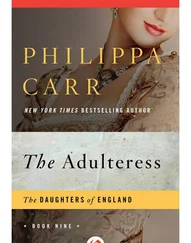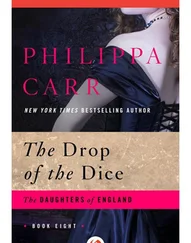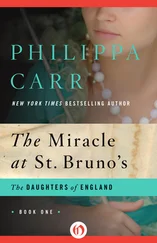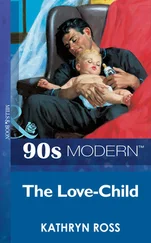Philippa Carr
The love child

I WAS FIRST AWARE of mystery when my father, who had hitherto for the most part seemed unaware of my existence, suddenly decreed that Mistress Philpots, who had until this time been my governess, no longer possessed the required qualifications for the task, and must be replaced. I was astounded. I had never thought that my education would be of any great concern to him. Had it been my brother Carl, who was some four years younger than I, that would have been another matter. Carl was the centre of the household; he shared my father’s name—Carl being short for Carleton since it would have been misleading to have identical names in one household—and he was being brought up to be exactly like my father which, summed up in my father’s phraseology, was “making a man of him.” Carl must be complete master of his horse; he must lead the hunt; he must excel at archery and gunnery as well as drive a good ball in pall-mall. If his Latin and Greek were a little weak and the Reverend George Helling, whose task it was to instruct him, despaired of ever making a scholar of him, that was not of great importance. Carl must first and foremost be made into a man, which meant being as like our father as one human being could be to another. Thus when he made this announcement, my first reaction was not “What will Mistress Philpots say?” or “What will the new governess be like?” but amazement that his attention should have come to rest on me.
It was typical of my mother that she should demand: “And what is to become of Emily Philpots?”
“My dear Arabella,” said my father, “your concern should be with your daughter’s education, not with the welfare of a stupid old woman.”
“Emily Philpots is by no means stupid, and I will not have my servants turned out because of a whim of yours.”
They were like that together always. Sometimes it seemed that they hated each other, but that was not the case. When he was away she was anxiously waiting for his return, and when he came back the first one he would look for—even before Carl—was she; and if she were not there, he would be restive and uneasy until she was.
“I have not said she should be turned out,” he insisted.
“Put to grass … like an old horse?” said my mother.
“I was always devoted to my horses and my affection does not end with their usefulness,” retorted my father. “Let old Philpots retire and nod over the fire with Sally Nullens. She’s happy enough, isn’t she—as happy as she can be without an infant to drool over?”
“Sally makes herself useful and the children love her.”
“I’ve no doubt Philpots can share the usefulness if not the love. In any case I have decided that Priscilla’s education can be neglected no longer. She needs someone who can teach her more advanced subjects and be a companion to her, a woman of good education, poise and scholarship.”
“And where shall this paragon be found?”
“She is found. Christabel Connalt will be arriving at the end of the week. That will give you plenty of time to break the news to Emily Philpots.”
He spoke with finality, and my mother, who was very wise and shrewd in a rather innocent way, realized that it was no use protesting. I could see that she had already decided that Emily Philpots had taught me all she had to teach and I must move into a higher sphere. Moreover my father had presented her with a fait accompli and she accepted it.
She questioned him about this Christabel Connalt. If she did not approve of her she would not accept her, she insisted. She hoped he had made that clear.
“She will naturally know she has to please the lady of the house,” retorted my father. “She is a pleasant young woman. I heard of her through Letty Westering. She is well educated and comes from a vicarage. Now she needs to earn a livelihood. I thought this would be an opportunity to do her and ourselves a good turn at the same time.”
There was a certain amount of argument and finally my mother agreed that Christabel Connalt should come, and set about the unwelcome task of tactfully telling Mistress Philpots that there was to be a new governess.
Emily Philpots reacted in the way my mother and I expected. She was, as Sally Nullens said, “Struck all of a heap.” So she was not good enough anymore to teach Miss! Miss must have a scholar, must she? They would see what would come of that. She communed with Sally Nullens, who herself had a grievance because Master Carl had been taken out of her hands since, as my father put it, it was not good for a boy to be mollycoddled by a pack of women. Moreover my parents had added to her indignation by not producing more children—neither of them being of an age when it would be impossible to populate a nursery.
Emily declared that she would pack her bags and be gone, and then we would see, she added darkly. But when the first shock had worn off and she began to consider the difficulties of finding a new post at her age, and when my mother pointed out that she would indeed be lost without her for there was no one, she was sure, who could do such fine feather stitching as Emily could, nor put a patch that was almost invisible on a garment, she allowed herself to be coaxed to stay; and with a certain amount of self-righteous sniffing and dark prophecies in Sally Nullens’s room over the glowing fire with the kettle singing on the hob, she prepared herself for the new life and the coming of Christabel.
“Be kind to poor old Emily,” said my mother. “It’s a blow for her.”
I was closer to my mother than I was to my father. I think she was very much aware of his indifference towards me and tried to make up for it. I loved her dearly, but it occurred to me that I had a stronger feeling for my father, which was very perverse of me in the circumstances. I admired him so much. He was the strong, dominating man; almost everyone was in awe of him—even Leigh Main who was something of the same sort himself and had always insisted, ever since I had known him, which was the whole of my life, that he was not afraid of anything on earth or in heaven or hell. That was a favourite saying of his. But even he was wary of my father.
He ruled our household—even my mother, and she was no weak woman. She stood up to him in a way which I knew secretly amused him. They seemed to enjoy sparring together. It did not make a peaceful household exactly, but that they found contentment in each other was obvious.
We were a complicated household, because of Edwin and Leigh. They were twenty-one years old on my fourteenth birthday, and they had been born within a few weeks of each other. Edwin was Lord Eversleigh and the son of my mother’s first marriage. His father— my father’s cousin—had been killed before he was born—murdered on the grounds of our home, which made him seem mysterious and romantic. Yet there was neither of these qualities about Edwin. He was merely my half brother—not quite as tall or as forceful as Leigh, overshadowed by Leigh actually, but perhaps that was just in my eyes.
Leigh was no relation to us really, although he had been brought up in our house since he was a baby. He was the son of my mother’s friend of many years standing, Lady Stevens, who had been Harriet Main, the actress. There was something rather shameful about Leigh’s birth. My mother didn’t speak of it and it was Harriet herself who told me.
“Leigh is my bastard,” she told me once. “I had him when I really shouldn’t, but I’m glad I did. I had to leave him to your mother to care for and of course she did that far better than I ever could.”
Читать дальше
